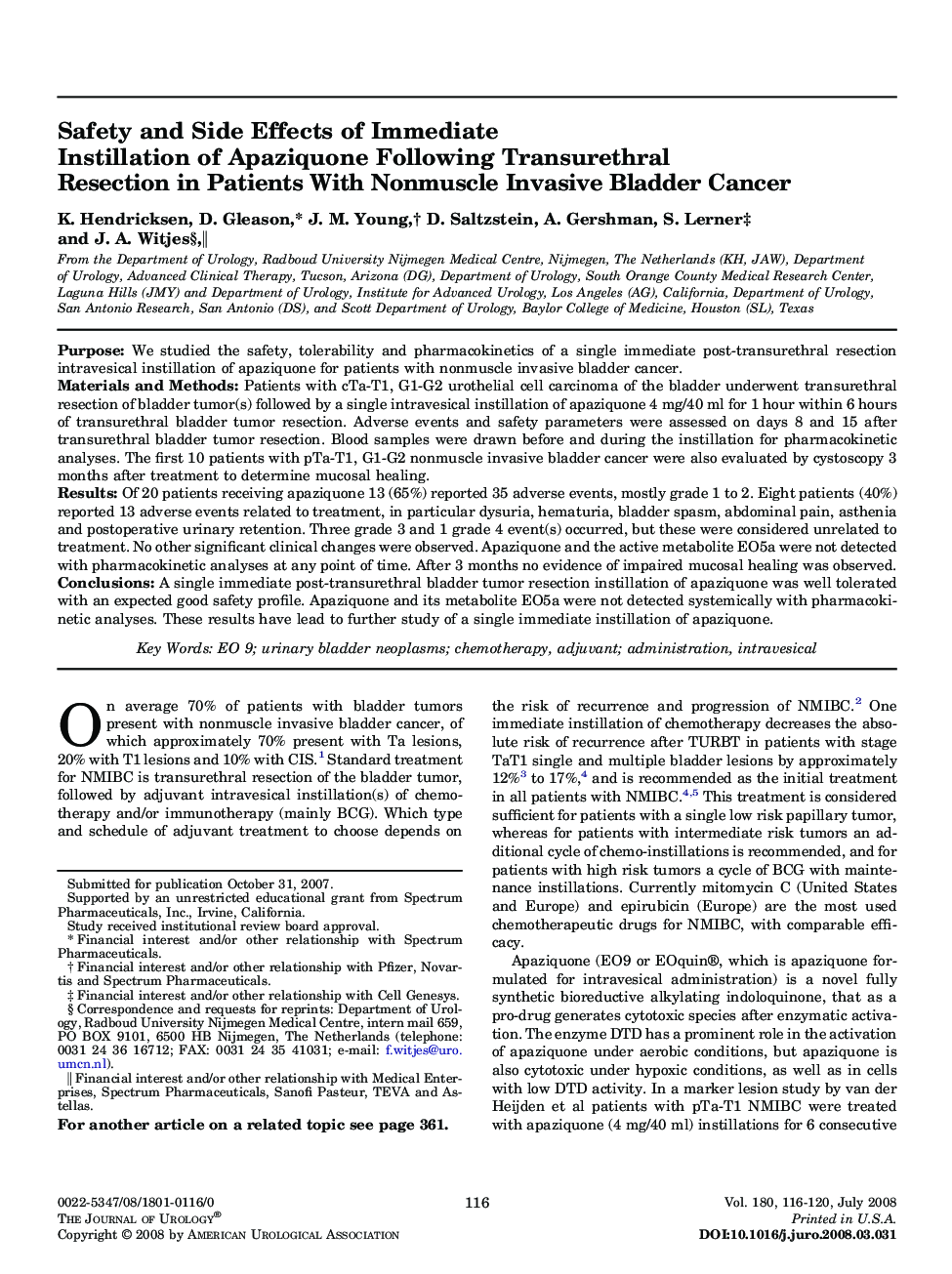| Article ID | Journal | Published Year | Pages | File Type |
|---|---|---|---|---|
| 3876517 | The Journal of Urology | 2008 | 5 Pages |
PurposeWe studied the safety, tolerability and pharmacokinetics of a single immediate post-transurethral resection intravesical instillation of apaziquone for patients with nonmuscle invasive bladder cancer.Materials and MethodsPatients with cTa-T1, G1-G2 urothelial cell carcinoma of the bladder underwent transurethral resection of bladder tumor(s) followed by a single intravesical instillation of apaziquone 4 mg/40 ml for 1 hour within 6 hours of transurethral bladder tumor resection. Adverse events and safety parameters were assessed on days 8 and 15 after transurethral bladder tumor resection. Blood samples were drawn before and during the instillation for pharmacokinetic analyses. The first 10 patients with pTa-T1, G1-G2 nonmuscle invasive bladder cancer were also evaluated by cystoscopy 3 months after treatment to determine mucosal healing.ResultsOf 20 patients receiving apaziquone 13 (65%) reported 35 adverse events, mostly grade 1 to 2. Eight patients (40%) reported 13 adverse events related to treatment, in particular dysuria, hematuria, bladder spasm, abdominal pain, asthenia and postoperative urinary retention. Three grade 3 and 1 grade 4 event(s) occurred, but these were considered unrelated to treatment. No other significant clinical changes were observed. Apaziquone and the active metabolite EO5a were not detected with pharmacokinetic analyses at any point of time. After 3 months no evidence of impaired mucosal healing was observed.ConclusionsA single immediate post-transurethral bladder tumor resection instillation of apaziquone was well tolerated with an expected good safety profile. Apaziquone and its metabolite EO5a were not detected systemically with pharmacokinetic analyses. These results have lead to further study of a single immediate instillation of apaziquone.
